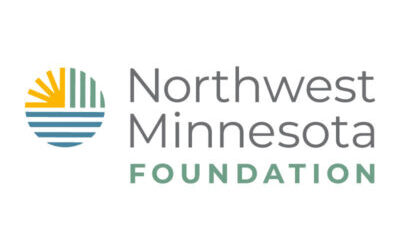Minnesota Business Vitality Council working group releases report and recommendations for addressing child care crisis
St. Paul – Early care and education (ECE), a critical part of the economic infrastructure in Minnesota, is dealing with a long-standing crisis. Under the State’s Department of Employment and Economic Development (DEED), a working group charged by DEED’s Minnesota Business Vitality Council (MBVC) has released a final report and recommendations to support the creation and sustainability of child care businesses.
“The availability of child care is a business issue with deep ramifications for our economy, our workforce, and our communities,” said DEED Commissioner Steve Grove. “The lack of reliable child care has a massive impact on our workforce. This report brings innovative new solutions to how we can fix this market, and details new ways government and business can partner to make sure every working family has access to quality care.”
The report highlights key recommendations for ECE financing, cross-sector partnerships, state-level coordination, and workforce supports, including expansion of funding to bring multiple sectors together to plan for child care needs in local communities. Recommendations also include tax incentives for employers who invest in community child care capacity, plus dedicated funding and support for child care facility development.
The report builds on Governor Walz and Lt. Governor Flanagan’s One Minnesota vision that the Minnesota’s Children’s Cabinet – an interagency partnership – helps make Minnesota the best place for each and every child to grow up. Several of the recommendations align with the Governor’s budget proposals, including increased investments in the state’s child care subsidy and scholarship programs and direct supports to providers, as well as in scholarships and career development opportunities for the ECE workforce.
“Increased access to affordable, reliable child care means more high-quality early learning opportunities for children and more economic stability for working families,” said Department of Human Services Commissioner Jodi Harpstead. “By eliminating barriers for child care providers, we help parents get to work and fill critical roles like those in the caregiving professions, so they can directly support Minnesotans who rely on them.”
“The need to transform child care in our state has existed for some time. At Delta Dental, team members in our Minneapolis and Bemidji locations have shared their concerns regarding access to dependable child care. This challenge affects families in many areas of working parents’ lives,” said Rod Young, CEO & President of Delta Dental of Minnesota. “Having viable childcare is an important element in providing working parents with flexibility and children with development opportunities. Minnesota’s working families will greatly benefit from the State’s efforts directed at supporting Minnesota’s child care business industry.”
The report’s recommendations include an extension of funding for new child care business support initiatives such as the One Stop Assistance Network new workforce development supports, a shared services pilot for family child care programs, and business training and consultation, which are largely funded with temporary federal dollars.
“Manufacturing businesses, like Wyoming Machine, having been dealing with workforce issues for a long time. Over the past few years, manufacturers have also come to realize the lack of affordable, high-quality child care is a barrier keeping some people from joining the industry,” said Traci Tapani, CEO of Wyoming Machine in Stacy, Minnesota. “Failure to make necessary changes in this critical industry will hold the Minnesota economy back.”
“We have a critical shortage of workers in Minnesota today. There are myriad issues impacting this that will not be solved with easy or quick solutions. Child care is one of those issues,” said Mark Urdahl, CEO of Red Wing Shoe Company. “Providing safe, affordable, and accessible child care will require creativity and collaboration from a variety of stakeholders, including local and state government, private institutions, businesses, and nonprofit organizations.”
With the release of the child care report and recommendations, the MBVC proposes new solutions, highlights longstanding recommendations of the ECE field, and also recommends Minnesota learn from and expand on innovative new efforts currently underway. Coordination of efforts to support child care businesses, and to evaluate and learn from these efforts, is critical to addressing the longstanding challenges in this sector.
“This report highlights what providers, families and others in Minnesota have long been saying to business and policymakers: investing in child care – both families’ access and providers directly – is critical, and there are important ways for business and the state to engage in these needs,” said Erin Bailey, Assistant Commissioner of the Children’s Cabinet. “It’s about our economy – and investing in early learning is also about our children, the future workforce.”
Department of Employment and Economic Development (DEED)
DEED is the state’s principal economic development agency, promoting business recruitment, expansion and retention, workforce development, international trade and community development. For more details about the agency and its services, visit the DEED website, the JoinUsMn.com website, or follow us on Twitter.
Department of Human Services (DHS)
The Minnesota Department of Human Services helps provide essential services to Minnesota’s most vulnerable residents. Working with many others, including counties, tribes and nonprofits, DHS helps ensure that Minnesota seniors, people with disabilities, children, families and others meet their basic needs and have the opportunity to reach their full potential. The department serves Minnesotans in all 87 counties and 11 tribes. More than one million Minnesotans receive some sort of help from our department. For more information, visit the department’s website at mn.gov/dhs.
Minnesota Business Vitality Council (MBVC)
DEED’s Minnesota Business Vitality Council (MBVC) seeks to address new economic opportunities in our global economy. Formed in 2020 by the Walz-Flanagan Administration, the MBVC is an interagency group in state government designed to tackle complex economic development issues,



